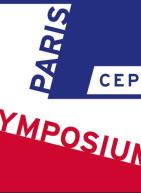General Description
We are pleased to announce details of the latest EABCN Training School; a three-day course titled "Inference in Macro Models: From Big data to Structural Analysis". Domenico Giannone and Giorgio Primiceri will teach the course. It is primarily aimed at participants in the Euro Area Business Cycle Network but applications will also be considered from doctoral students, post-doctoral researchers and economists working in central banks and government institutions outside of the network, as well as commercial organisations (fees applicable for non-network organisations).
Course Contents
This course covers methods designed to deal with prediction with ?big data? in macroeconomics, and to conduct structural analysis. The three main subjects of the course are: (i) predictive regressions with big data; (ii) Bayesian VARs, as a popular example of big data multivariate models, which also represent a bridge between reduced-form and structural models; (iii) DSGE models, which have become the most popular tool for structural and policy analysis. We will also touch upon several other topics, such as state-space models, Monte Carlo methods, model comparison and model choice. Along the way, we will discuss applications to forecasting economic activity with large datasets, potential output and the natural rate of interest, scenario and counterfactual analysis. An approximate outline is as follows:
Prediction with big data:
(a) The curse of dimensionality: symptoms and cures; (b) Brief introductions to Bayesian inference; (c) Priors and their connection with regularisation and shrinkage techniques.
VARs and BVARs:
(a) Prior distributions and numerical techniques to sample from posterior distributions; (b) The selection of the regularisation parameter/prior tightness; (c) Unconditional forecast; (d) Conditional forecasts and scenario analysis.
DSGE models:
(a) Model specification; (b) Bayesian inference; (c) using DSGE models for counterfactual analysis and to estimate fundamental objects for the conduct of monetary policy, e.g. potential output and the natural rate of interest.
On each of the three days the classes will follow the below schedule.
9:00-10:30: Lecture
11:00-12:30: Lecture
14:00-15:30: Practical
Travel and Accomodation
The course will take place at the Universitat Pompeu Fabra (Barcelona). Participants will be invited to make their own arrangements regarding their travel, accommodation and meals. Further information will be available to successful applicants.
How to apply
Candidates should apply online by uploading their CV by 6pm (GMT), Friday 1 March, 2019. If you do not have a personal profile, you can create one here https://portal.cepr.org/user/register . You may also want to refer to our Guidelines on how to register online for CEPR Meetings at www.cepr.org/content/Electronic-Meetings-Organisation . If you have any issues logging in, please contact Mariolina Ciccone, Events Officer at CEPR at [email protected] or +44(0) 20 7183 8809.
PhD students should also send a statement that specifies the ways participating in the school will be useful for their current research (max 300 words). Please do so by either uploading an additional file or filling the "Comments" field.
Participants from non-academic institutions where the employer is not a member of the EABCN network are charged a course fee of 2000 euro.
About the Instructors
Domenico Giannone is Assistant Vice President at the Federal Reserve Bank of New York. He holds a PhD from the Université libre de Bruxelles and has been an Assistant Professor at LUISS University of Rome and Professor at the Université libre de Bruxelles. He has also worked as an Economist at the Monetary Policy Research Division of the European Central Bank and has been the scientific coordinator of the Euro Area Business Cycle Network. Domenico is a research fellow of the CEPR, and an associate editor for the Journal of Business and Economic Statistics, the Journal of Applied Econometrics, the International Journal of Forecasting, and Empirical Economics. His main areas of research are time series econometrics, forecasting, monetary policy, and business cycles.
Giorgio Primiceri is a Professor of Economics at Northwestern University. He holds a PhD from Princeton University and was the recipient of a Sloan Foundation Research Fellowship. He is a research fellow of the CEPR and a research associate of the NBER, and a consultant for the Federal Reserve Bank of Chicago and the European Central Bank. Giorgio is also a co-editor of the American Economic Journal: Macroeconomics and a member of the Euro Area Business Cycle Dating Committee. His main areas of research are macroeconomics and applied time-series econometrics.

